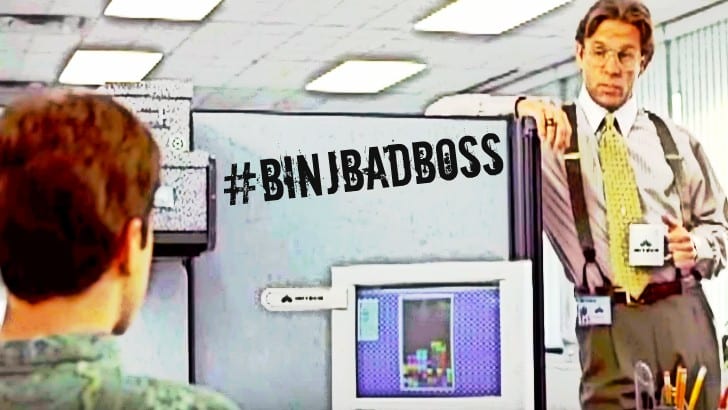Image by Kent Buckley
October 20, 2015
BY JASON PRAMAS @JASONPRAMAS
One of the marks of what scholars call hegemonic discourse is the assumption that a society’s ruling ideology is considered so “normal” that it does not even need to be named, let alone explained. So it is with the Boston Globe and capitalism.
Most of the Globe’s editorial board, columnists, and reporters, like virtually the entire mainstream American press corps, start from the position that capitalism is the best of all possible political economic systems. And, while it may need periodic reform on behalf of “the neediest” in our society (as they like to put it), fundamentally “there is no alternative”—as Margaret Thatcher famously quipped—to capitalism. Understood as free markets, free trade, and corporate globalization. Yet only a handful of Globe staff, like conservative columnist Jeff Jacoby, openly state that position with any regularity.
How then are the Globe’s mainstream capitalist journalists to deal with the increasingly successful Presidential candidacy of Sen. Bernie Sanders, a socialist running as a Democrat?
If recent articles referencing Sanders are any measure, the Globe is choosing to deal with him by setting up straw men about his stated ideology and then knocking them down.
Take Joan Vennochi’s latest column, “When did Democrats become the party of free stuff?” In it she states that “progressive ideology” (whatever that is) “is increasingly about asking government to provide more for its citizens—and more for noncitizens, too.” She juxtaposes that already problematic typification to JFK’s famous call to “Ask not what your country can do for you. Ask what you can do for you country.” She cites that call as being “strongly rooted in the notion of self-reliance,” and in the belief that “government is not there to serve us. We are there to serve it.”

She then moves on to paint Sanders and his ideas as essentially a threat to said Kennedy values. The crux of her argument hinges on the definition of socialism that she chooses to use. Which, to get to the point, is incorrect. In this case, Vennochi cites a recent Washington Post blog post that describes socialists “as people who believe ‘that the government should provide a wide range of basic services to its citizens free of charge or at a discount, typically including university education and health care, as well as child care, housing, telecommunications, energy, and more.’ They also believe these services ‘should be available to everyone, not just the neediest.’”
The problem with that definition of socialists and socialism is that it describes a welfare state, not socialism. Welfare states are possible under pretty much any type of modern government. One of the earliest welfare states began under a German emperor in the late 1800s. There have been welfare states in fascist nations, like Italy under Mussolini, in capitalist dictatorships like Singapore under Lee Kuan Yew, and here in the United States to a degree between the 1930s and the present. And yes, also in social democratic (a.k.a. democratic socialist) countries like Sweden—particularly from the 1960s to the 1980s.
So the definition of socialism is not the fact that it allows for a strong welfare state.
Socialism encompasses a broad sphere of ideas, but most socialists share in the belief that human beings should have equal rights (not one set of rules for privileged groups, and another for everyone else), that there should be democratic control of both political and economic institutions worldwide, and that a socialist society must strive to eliminate private control over the means of production. So that the working people of the world—the “99 percent”—can finally control our own destiny.
It’s commonly thought that socialism has to spring from national governments, but elements of socialism can also be introduced by regional and local governments, and critically by trade unions, nonprofit organizations, and co-operatives. Many anarchists are in fact libertarian socialists who believe that networks of very democratic local governments and smaller scale non-governmental organizations should run society— not nation-states, multinational corporations, and huge political parties of the traditional left, right, or center.
There can still be capitalism in socialist societies, but it is typically limited—and kept away from the commanding heights of core economic sectors like healthcare, housing, education, and energy. Also, politics is kept more free from the influence of concentrations of individual and corporate wealth in such societies, helping to ensure that the rich don’t use their funds to seize control over government as completely as they are now doing in the US.
Other articles referring to socialism in the Globe recently have the same flaw as Vennochi’s piece. To the extent they address socialism directly at all, they mischaracterize it. Then dismantle their mischaracterization.
I’ve been watching capitalist reporters take that kind of “ranting at an empty chair’ approach for my entire adult life when it comes to any ideology left of the Democratic Party, and have always thought it to be a cheap tactic and intellectually dishonest. If the Globe was a real forum of ideas, they would at least invite prominent socialist thinkers—of whom there are a number in Boston—to openly discuss and debate what socialism, democratic or otherwise, might mean for America on an ongoing basis.
A good step in that direction would be running the text of the speech that Sanders is planning on the meaning of democratic socialism in its entirety. A better one would be allowing local thinkers across the political spectrum—the full political spectrum, including intellectuals on the anti-capitalist left—to debate the merits of Sanders’ speech in the Globe’s pages. There are several people I could recommend. But why not invite the most famous left thinker on the planet, who lives here in the Boston area, and who theGlobe has resolutely snubbed for the last 50 years: Noam Chomsky.
Here’s his email: chomsky@mit.edu. He answers all communications faithfully. Heck, if the Globe wants, I’ll invite him for them. Globe editors are welcome to flag me at jason@binjonline.org. Anytime. My line, as ever, is open.
Apparent Horizon is the first column syndicated by the Boston Institute for Nonprofit Journalism. Jason Pramas is BINJ network director.
Copyright 2015 Jason Pramas. Licensed for use by the Boston Institute for Nonprofit Journalism and media outlets in its network.


